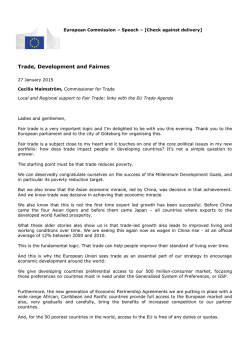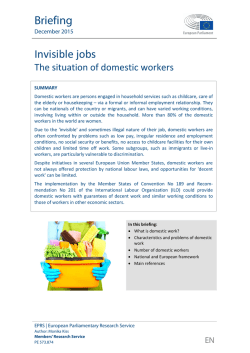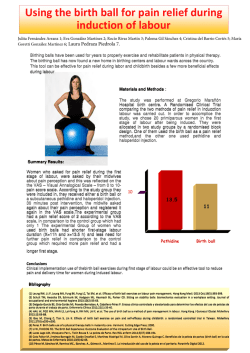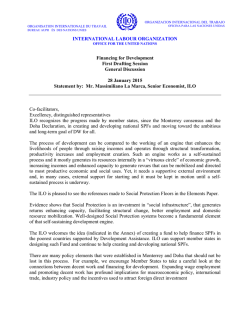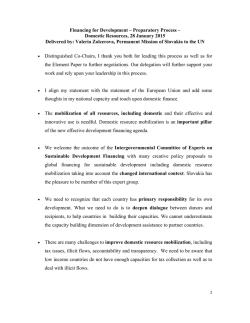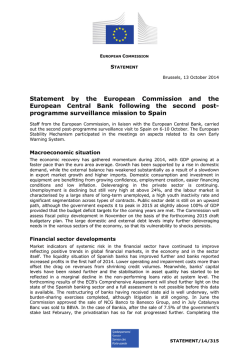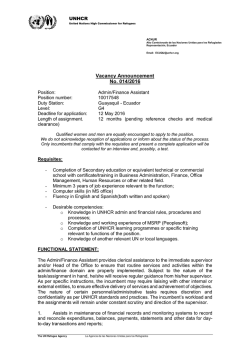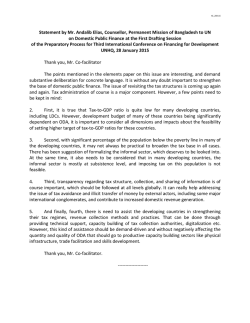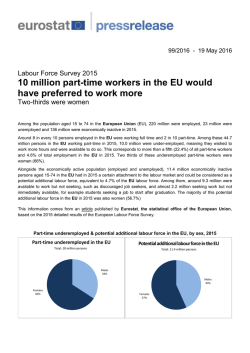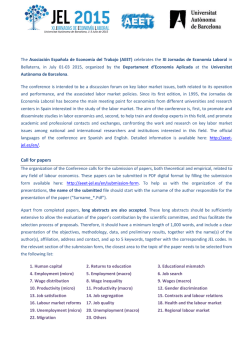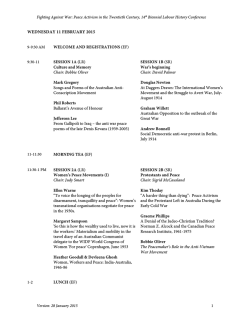
ILO
ORGANIZACION INTERNACIONAL DEL TRABAJO ORGANISATION INTERNATIONALE DU TRAVAIL OFICINA PARA LAS NACIONES UNIDAS BUREAU AUPR ÈS DES NATIONS UNIES INTERNATIONAL LABOUR ORGANIZATION OFFICE FOR THE UNITED NATIONS Financing for Development First Drafting Session Domestic and international private finance 29 January 2015 Statement by: Mr. Massimiliano La Marca, Senior Economist, ILO Thank you Mr. Co-facilitator, Yesterday, the ILO emphasized the importance of creating an enabling environment that supports MSMEs and promotes financial inclusion, FDIs and strategic integration into global value chains. I would like to add a new dimension to the theme of domestic private finance as a source of self-sustained development that is missing in the Elements Paper. A large part of the financing needs of enterprises is covered by revenues from sales of their products and at the same time, revenues depend on domestic and external demand. The current global financial and economic crisis is still showing us the importance of domestic and global demand in supporting investment and capacity accumulation, as well as in avoiding the threat of “secular stagnation” in developed countries and supporting development in developing countries. Work that is productive and fairly remunerated creates the mobilization of resources that boosts demand (domestic and global) through consumption and investment that supports the growth of incomes, which in turn generates necessary savings. The importance of employment and social protection polices including effective labour market policies and legislation that support statutory or negotiated minimum wage systems, acceptable conditions of work, strengthened labour standards, and institutions of collective bargaining and labour administration, cannot be over-estimated. These are essential elements for domestic and international private finance. In other words, decent work should be considered a priority that can support domestic (public and private) resource mobilization. The Global Jobs Pact may be utilized to develop a more systematic approach for generating fiscal space and also for targeting investments in support of job creation, attracting FDIs and supporting the private sector. I thank you.
© Copyright 2026
